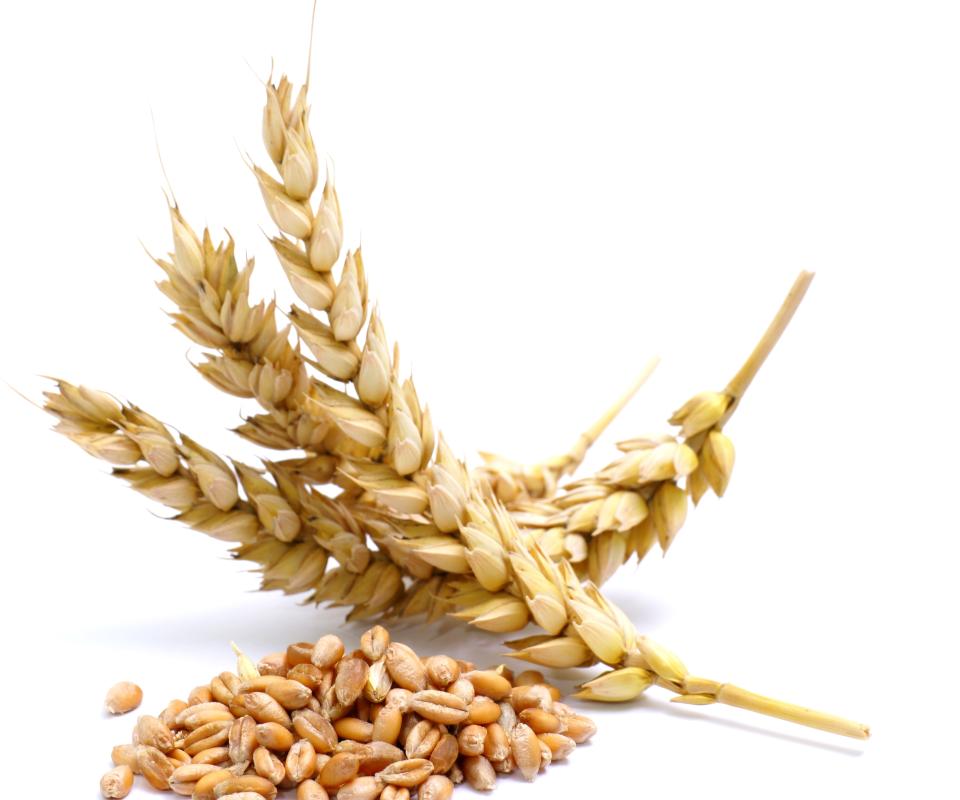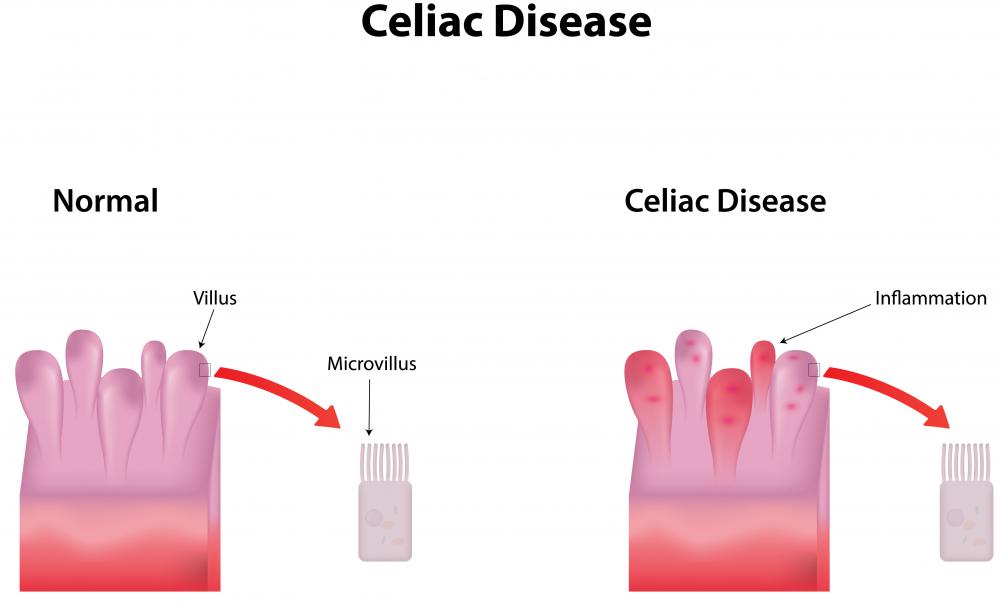At WiseGEEK, we're committed to delivering accurate, trustworthy information. Our expert-authored content is rigorously fact-checked and sourced from credible authorities. Discover how we uphold the highest standards in providing you with reliable knowledge.
What are the Signs of Gluten Intolerance in Children?
One of the main signs of gluten intolerance in children is abdominal pain, often resulting in decreased appetite and vomiting. Such symptoms often cause failure to grow at the proper rate. Additionally, the physical discomfort may lead to certain behavioral issues, such as irritability, fatigue, and depression. Symptoms of gluten intolerance in children are usually not observed until they are old enough to begin eating foods with this protein, such as bread, soft cheese, cereal, cake, pastries, pasta, and processed meats, to name a few products.
Sensitivity to gluten, which is a protein found in wheat, barley, rye, and oats, is not always identified children because parents may fail to notice the symptoms. Among the primary indicators of gluten intolerance in children is discomfort in the intestinal tract. A decreased appetite is another sign, likely due to the presence of abdominal cramping and pain, making it difficult to even think about eating. Vomiting often occurs even when the child does actually eat. Diarrhea, gas, and constipation are other stomach issues that often arise in children with gluten intolerance. In fact, heartburn, irritable bowel syndrome, acid reflux, and rectal bleeding can all occur with children who have gluten intolerance, making it wise for them to avoid the foods that cause the issues.

This abdominal discomfort often leads to weight loss, or at least an inability to gain weight properly. A swollen stomach paired with abnormally thin legs and arms can often be a sign of gluten intolerance in children. This is because they cannot absorb nutrients correctly, and usually feel sick so often that they do not eat as much or as frequently as they should. Puberty is often also delayed for years in children with gluten intolerance, as they are unable to eat much during the years in which they are supposed to grow the most.

So much physical discomfort and inability to grow can often lead to behavioral changes in affected children. Irritability, fatigue, mood swings, and depression all frequently occur in children who are not able to properly absorb nutrients due to gluten intolerance. Headaches, anemia, and joint pain usually do not make moods any better. Additionally, children with this issue typically suffer from other minor yet painful medical problems, such as mouth ulcers, eczema on the skin, and dental issues. Such symptoms are to be expected, and usually contribute to behavioral changes, until the child is diagnosed with gluten intolerance, and finally cuts out the foods that cause the issue.
AS FEATURED ON:
AS FEATURED ON:














Discussion Comments
Another problem on the rise is lactose intolerance or even milk allergy. If the problem a child has does not turn out to be wheat allergy or a gluten intolerance, they may also be milk allergy symptoms.
If you need to eat a gluten free diet, a lot of grocery stores carry impressive gluten free food sections these days, and the increased awareness of this problem has led to a growth in specialty food stores catering to products without gluten as well.
Post your comments